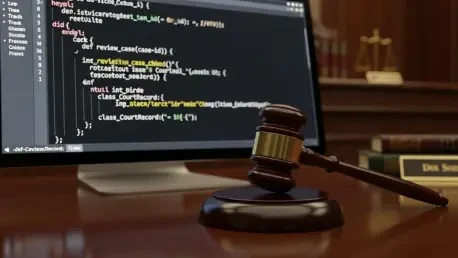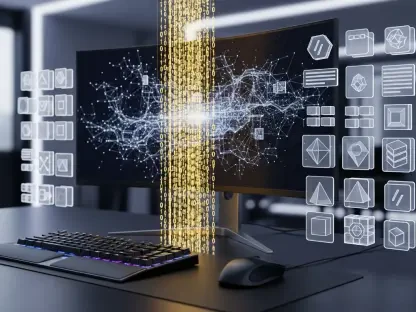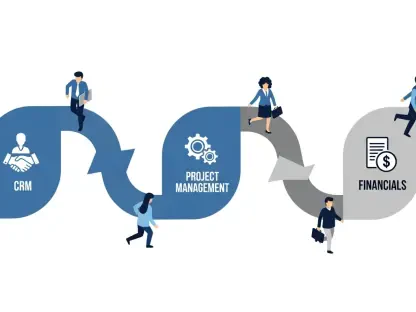As we dive into the complex world of technology law and intellectual property, I’m thrilled to sit down with Anand Naidu, a seasoned expert in software development and a guru in both frontend and backend technologies. With his deep understanding of coding languages and the legal intricacies surrounding tech ecosystems, Anand is the perfect guide to unpack Deno’s bold crowdfunding campaign to challenge Oracle’s hold on the JavaScript trademark. This conversation explores the motivations behind Deno’s legal battle, the implications for the tech community, and the broader impact on trademark law in the digital age.
Can you start by shedding light on what drove Deno to launch a crowdfunding campaign to challenge the JavaScript trademark?
Absolutely, Kendra. Deno’s decision to start this GoFundMe campaign, aiming to raise $200,000, stems from a fundamental disagreement with Oracle holding the trademark for “JavaScript.” They believe that the term should belong to the public domain, not be tied to a corporate entity, especially since Oracle doesn’t actively use it in connection with any specific product or service. The crowdfunding idea emerged as a practical way to fund a formal Cancellation Petition with the USPTO, given the high costs of legal proceedings, particularly in the resource-heavy discovery phase.
What broader issues does Deno see with Oracle maintaining control over the term “JavaScript”?
Deno argues that Oracle’s ownership creates an unfair barrier in the tech ecosystem. “JavaScript” is universally recognized as the name of a programming language, not a brand or product tied to Oracle. They see this as a misuse of trademark law, which is meant to protect active commercial brands, not to allow companies to claim ownership over common terms. Deno fears this could set a precedent for large corporations to control widely used language in tech, stifling innovation and community access.
What is Deno ultimately hoping to achieve with their petition to the USPTO?
The core goal is to move “JavaScript” into the public domain by canceling Oracle’s trademark. If successful, it would mean that anyone—developers, companies, educators—could use the term freely without fear of legal repercussions. This would reinforce the idea that generic terms, especially those central to global tech culture, shouldn’t be monopolized. For the broader tech community, it could enhance collaboration and reduce legal uncertainties around using foundational terms.
Can you break down the current stage of Deno’s legal battle with Oracle?
Right now, they’re in the discovery phase with the USPTO, which is essentially the evidence-gathering stage. It involves digging through documents, depositions, and expert testimonies to build a case. It’s incredibly resource-intensive because both sides need to meticulously prepare their arguments—whether it’s proving that “JavaScript” is generic or that Oracle has abandoned the trademark. This phase often determines the strength of the case before it even reaches a hearing, so it’s a critical and costly step.
Deno has highlighted two main arguments in their petition. Can you explain what they mean by “JavaScript” being a generic term and Oracle abandoning the trademark?
Sure, let’s unpack those. First, Deno argues that “JavaScript” is generic because it’s the common name for a programming language used by millions worldwide, not a specific brand or product linked to Oracle. It’s like trying to trademark the word “computer”—it’s just too fundamental to the industry. Second, on abandonment, Deno claims Oracle hasn’t actively used the trademark in commerce for any related goods or services. If a trademark isn’t tied to an active product, US law suggests it can be considered abandoned, and Deno believes this applies here.
How has Oracle responded to these claims so far in the legal process?
Oracle had until August 7 to formally respond, and they’ve pushed back by denying that “JavaScript” is a generic term. They’re essentially asserting that the trademark still holds value and relevance under their ownership. Deno counters this by emphasizing that no web developer associates JavaScript with Oracle—it’s purely a language name. They argue that trademark law isn’t meant for companies to hold onto common terms indefinitely, especially without active use, and they’re sticking to that narrative strongly.
Ryan Dahl, Deno’s CEO, has been a driving force behind this campaign. Can you share what fuels his passion for this cause?
Ryan Dahl, who also created Node.js, brings a unique perspective to this fight. His history with JavaScript-based technologies gives him a personal stake in ensuring the language remains unencumbered by corporate control. He’s expressed frustration over how trademark law can be misused to restrict community access to essential tools. Beyond just freeing “JavaScript,” Dahl sees this as a fight for the integrity of trademark law itself, hoping to prevent large corporations from exploiting legal loopholes at the expense of the tech world.
Deno has tried reaching out to Oracle before resorting to legal action. Can you tell us about those earlier efforts?
Yes, this isn’t a sudden move. Back in September 2022, Ryan Dahl and Deno sent an open letter to Oracle, urging them to relinquish the trademark. When that went unanswered, they followed up with another letter in September 2024, which also got no response. These attempts show Deno initially sought a resolution outside the courts, but Oracle’s silence pushed them to file a formal cancellation petition with the USPTO, escalating the issue into a full legal battle.
What do you think this campaign means for the future of trademark law in technology?
This case could be a landmark for how trademark law is applied in the tech industry. If Deno succeeds, it might encourage challenges to other overly broad or abandoned trademarks, ensuring that common terms remain accessible. On the flip side, if Oracle prevails, it could embolden large corporations to tighten control over widely used terms, potentially chilling innovation and creating legal minefields for developers. It’s really about whether trademark law will protect community interests or corporate overreach in the digital age.
What is your forecast for the outcome of this trademark dispute and its impact on the software development community?
Predicting legal outcomes is tricky, but I think Deno has a strong case with their arguments on genericity and abandonment, especially given the community support—over 27,000 signatures on their open letter speak volumes. If they win, it’ll be a huge victory for developers, affirming that core tech terms can’t be locked behind corporate gates. If they don’t, it might create uncertainty, with more companies potentially facing legal risks over everyday language. Long-term, I hope this sparks a broader conversation about balancing IP rights with open innovation in tech.









